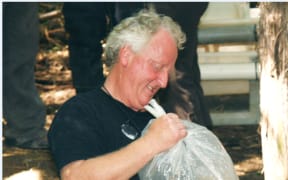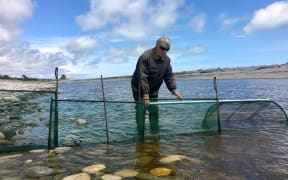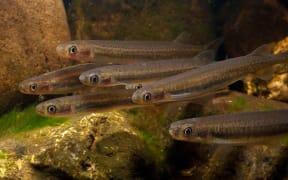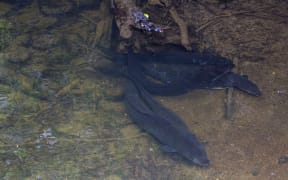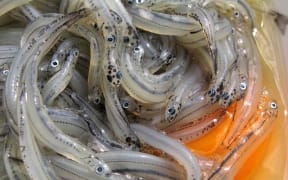Whitebaiting rules are set to change in an effort to save the four species currently threatened by extinction, but it stops short of imposing catch limits.
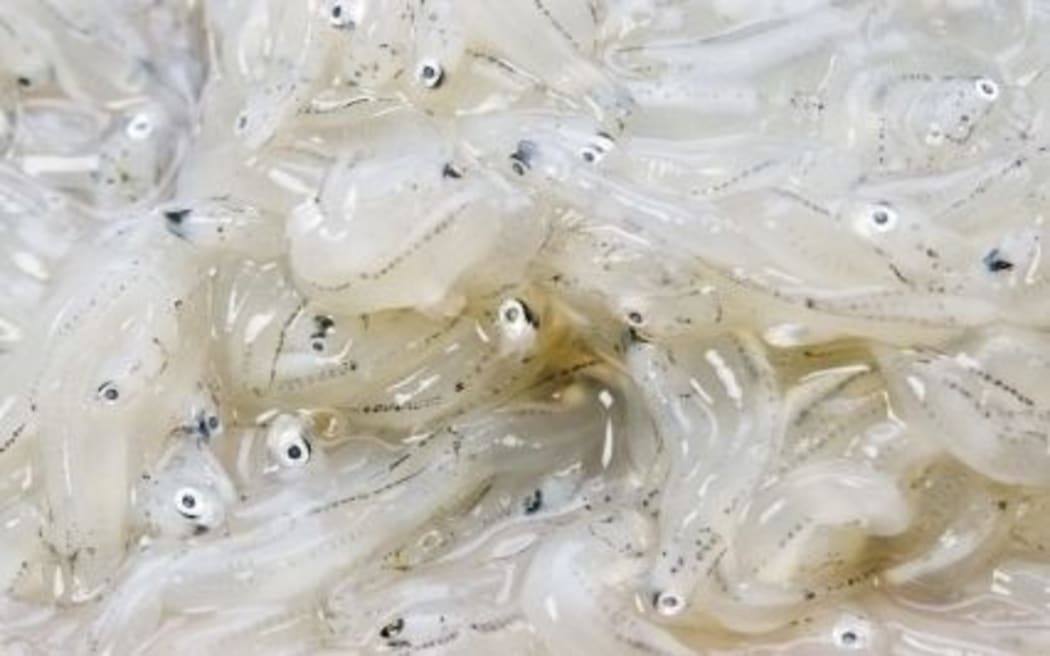
Photo: 123rf
The government has begun consultation aimed at protecting whitebait from extinction, with measures including safe havens for whitebait to spawn, a shorter whitebait season and a phase-out of whitebait exports and large volume catch nets.
The government isn't planning on introducing a licensing system or banning the commercial sale of whitebait within New Zealand. And given the enormous number of locations in which whitebait fishing can occur in New Zealand, enforcing catch limits "effectively would be impossible", the proposal stated.
"DOC's preference is to apply other measures to manage whitebait catch, rather than implementing a limit that would be impossible to enforce. Therefore, catch limits (of any sort) are not included in this consultation."
However, Forest and Bird freshwater advocate Annabeth Cohen said the proposed changes did not go nearly far enough, particularly as four species were endangered or threatened.
"What we have got is an unregulated fishing industry and they're fishing an endangered species. So we're a little disappointed with the options being put forward."
Forest and Bird wants to see a catch limit, licensing, and data on what was being caught and where, Cohen said.
"We need to know what fish are being taken out, especially given the majority of these species are endangered."
The current whitebait season lasts for 15 weeks, from mid-August till November, or just over 10 weeks on the West Coast.
The proposal includes shortening the nationwide season to between eight to 10 weeks.
Levin man Gerald DeCastro has been whitebaiting all his life and thinks an eight-week season would be long enough.
In his 70-odd years, his biggest haul was under 1.5kg. But he said he had seen people take 30 times that in one go so it was clear that not everyone played by the same rules.
"Fifty percent of people have their own ways of fishing and you'll have one lot on one side of the stream, and the other lot on the other side of the stream."
Conservation Minister Eugenie Sage said the changes needed to happen to save whitebait species.

Minister of Conservation Eugenie Sage. Photo: VNP / Phil Smith
"If people are interested in a long term fishery where people can enjoy a whitebait patty without thinking that the fish they're eating are threatened with extinction, then these are the changes we need to make.
"We need to have changes so we also have some safe haven for whitebait where there are refuges from fishing pressures from some patches of waterways in each region."
University of Canterbury research biologist Mike Hickford said while the suggested changes were necessary, they wouldn't need to be made if whitebait habitat was protected in the first place.
"Habitat has a huge effect on the ability of these species to make it through their life history, probably more so than the fishery itself," Hickford said.
"We've had a whitebait fishery that has gone on since Europeans arrived in New Zealand and went on for an awfully long time before that. But it wasn't until we started messing with their habitat that we then need to start looking at strong fishery management to ensure it's sustainable."
Stream restoration, maintenance and improvement of adult habitat, spawning habitat, and water quality all have an effect, said Hickford, who has been researching whitebait for about 17 years.
"We also need to address all of those things if we want the public to believe that the whitebait fishery is sustainable," he said.
"There are enough options in there I think that would really make a difference to the impact the fishery itself has on the species."
Consultation on the proposed changes will be taking place around the country over the coming months.
